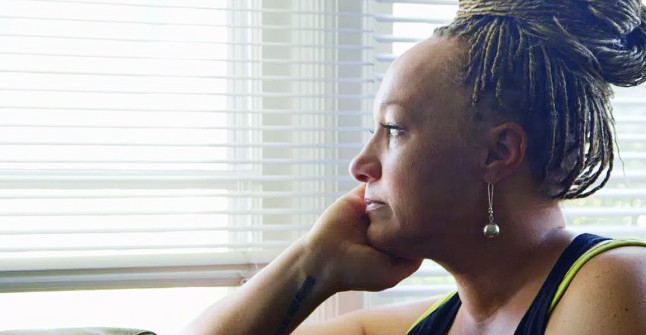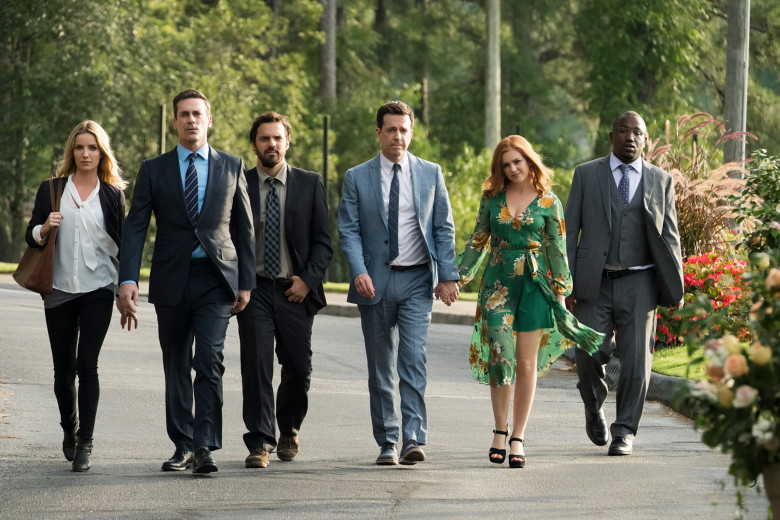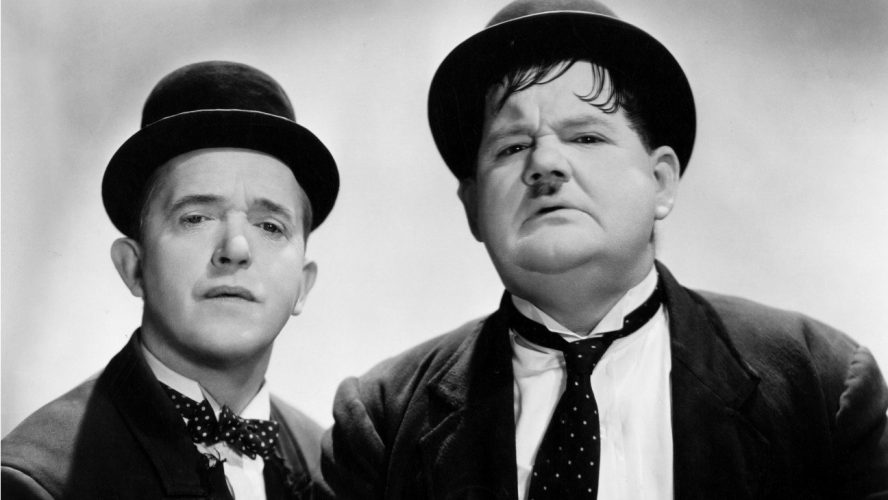 Rachel Dolezal made international headlines when, in 2015, it emerged that she was not all that she claimed to be. As the leader of the Spokane, Washington chapter of the NAACP, she was prolific in her protests, public speaking and poignant messages. There was just one small issue. She had been claiming to be an African American woman when she was, undeniably, a white woman.
Rachel Dolezal made international headlines when, in 2015, it emerged that she was not all that she claimed to be. As the leader of the Spokane, Washington chapter of the NAACP, she was prolific in her protests, public speaking and poignant messages. There was just one small issue. She had been claiming to be an African American woman when she was, undeniably, a white woman.
Laura Brownson’s documentary – which premiered at the Tribeca Film Festival and is now streaming on Netflix – follows Dolezal and her family as she continues to press the issue of “identifying” as a black woman. This piece of cinema could have easily been an outright character assassination, slamming every claim Dolezal had ever made. What it actually does is explore her upbringing, her family, her mental health and – in complete fairness – the brilliant work that she did as part of the NAACP.
Why, then, did she not simply undertake all of this excellent morality campaigning in her own skin? If she was so good at raising awareness for the racial divide in her city, couldn’t she have done this from a more authentic position? Dolezal doesn’t see things that way. For her, identity is so fluid that it’s natural for her to dress “like a black woman”.
And, in this age of gender fluidity, perhaps she has a point. But, the problem is, when she intricately styles her weave or applies lashing of bronzer, it almost feels like she’s playing a part. At times, it borders on the extremely uncomfortable as old pictures look like she is wearing blackface. In dressing and behaving the way that she does, many local African American journalists and activists felt that she was reducing an entire history and culture down to a headscarf and some jewellery.
The documentary touches on her unconventional upbringing. The eldest daughter of two (white) parents, she was emotionally and physically abused throughout her childhood and also alleges that her elder brother sexually abused her. Her parents adopted four black children – one of whom Dolezal currently has custody of – and also proceeded to physically abuse them. By way of disassociation with such a troubled upbringing, she ‘sided’ with her adopted siblings; finding more in common with them than her violent parents. It seems as if choosing to be black allowed Dolezal to distance herself from the torment and hurt of her childhood.
There is no doubt that she is a victim of her emotionally troubled youth. But, all of her cries of victimhood were met, by many, with disbelief. It seems that when you tell one big lie – such as, the race you belong to – everything else you say is thrown into doubt.
 Dolezal claims that the media circus surrounding her refusal to admit that she is biologically white – something she has only recently conceded – has turned her into a pariah and a hermit. She is fearful to go out. People leave bananas on her car; send her hate mail; hurl racist insults at her children. She documents all of this on her social media accounts. Despite all of these terrible attacks, it is very hard to feel sympathy for a woman who, at best, appears deluded and, at worst, is an awful racial parody.
Dolezal claims that the media circus surrounding her refusal to admit that she is biologically white – something she has only recently conceded – has turned her into a pariah and a hermit. She is fearful to go out. People leave bananas on her car; send her hate mail; hurl racist insults at her children. She documents all of this on her social media accounts. Despite all of these terrible attacks, it is very hard to feel sympathy for a woman who, at best, appears deluded and, at worst, is an awful racial parody.
Her own children – one adopted sibling and two biological children – seem to have the most uncertainty surrounding them. Their surname connects them to a woman who is vilified within the community. They have no friends at school and are targets for online abuse. They seem incredibly tired and frustrated by their inability to escape the ongoing furore. Whilst initially they appear sympathetic towards their mother, by the end of the documentary, her insistence on TV appearances and a book deal have clearly taken their toll.
Part of you does wonder if Dolezal revels in the media attention. After all, she would simply be another local campaigner if it weren’t for the endless news coverage surrounding her past and her skin colour. Her sons were pleased that her TV appearances and news soundbites had come to an end, only for her to start them back up again when everything had died down.
Dolezal has, ironically, turned herself into the ultimate poster girl for white privilege. She can darken her skin and put a weave in her hair without having to experience any of the challenges and harassment facing African American women. As one commenter put it, “If you get stopped by the cops, you can shrug all of this off and go back to being a white woman.” Her ‘trans-racial’ identity is not one that can be afforded to a black woman who dreams of being white or a Latino woman who dreams of being Asian. They cannot change their appearance as radically as the formerly freckled blonde has.
The documentary finishes with exasperated sighs from her sons. They are done with the negative associations of their surname. Dolezal, defiant as ever, gifts herself a thick, black, braided weave and a new African name on her driver’s license.
I can’t tell if it’s selfishness, attention seeking or a genuine mental health problem. Either way, I doubt we’ve heard the last of Rachel Dolezal yet.
- The Return – Review from Glasgow Film Festival - March 9, 2025
- Homegrown – Review from Glasgow Film Festival - March 8, 2025
- Nocturnal – Review from Glasgow Film Festival - March 7, 2025




